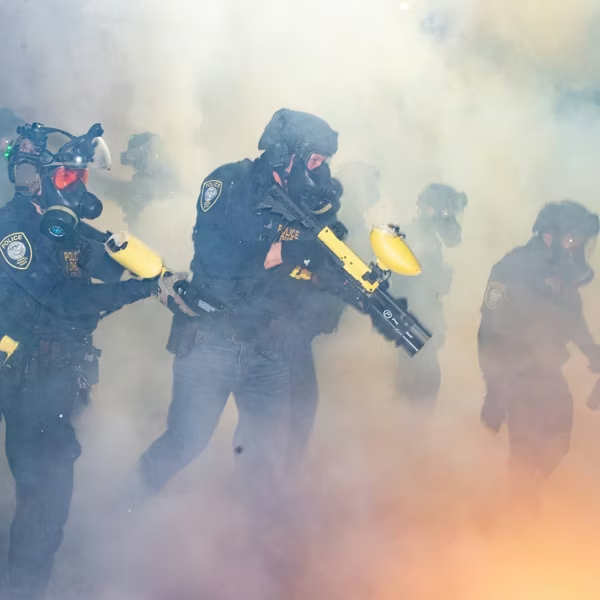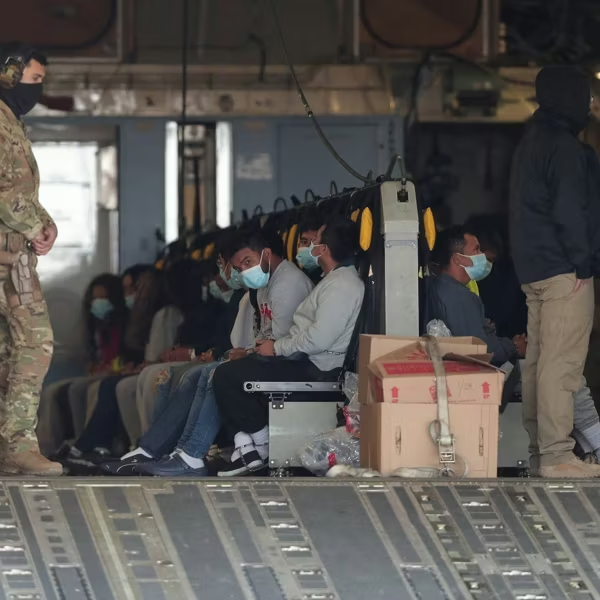Human Rights Watch on Wednesday condemned the Texas National Guard for firing pepper-spray projectiles at migrants, including women and children, who've presented no danger, citing multiple recent incidents.
"In separate incidents this summer, witnesses saw Texas National Guard members firing pepper-spray projectiles at migrants who posed no risk to National Guard members or anyone else," Bob Libal, an HRW consultant, said in a statement.
Pepper-spray projectiles, which are often shaped like balls, contain chemical irritants similar to pepper spray. HRW documented several instances of their use by the Texas National Guard, which polices the border as part of Operation Lone Star, a right-wing state project that has already cost more than $11 billion and drawn opposition from rights advocates.
On September 7, a Texas National Guard member in a boat fired several projectiles at a migrant who had crossed onto the U.S. side of the Rio Grande, at Eagle Pass, Texas, according to three witnesses who watched from a park in Mexico. The migrant fell down, did not get up, and didn't receive aid, they told HRW.
"I saw a National Guardsman in the boat train his gun on the man and then he pepper balled him," said Josie Rodrigues, one of the witnesses, who is a resident of Eagle Pass. "He shot him four or five times. I saw the puffs of smoke and the man went down, and he didn't get up again. It looked to me like they were aiming at the person, not around him or at his feet. It was disturbing."
On August 5, a group of migrants, including children, alleged that projectiles were fired at them, causing their eyes to burn; U.S. Border Patrol said that the Texas National Guard was in control of the area where the incident occurred, according to HRW.
The Texas National Guard also fired pepper balls at a Venezuelan couple and their 1-year-old daughter in May, Newsweek reported, based on video from Border Report.
International human rights law has strict rules on the use of force—even sublethal force, as the projectiles are designed to be—by law enforcement.
"Chemical irritants should only be deployed where a law enforcement official has reason to believe there is an imminent threat of injury," according to United Nations' guidance.
HRW is calling for the state Legislature to deny additional funding to the Texas Military Department, which oversees the state's National Guard, until the use of projectiles against migrants ends. The funding was on the agenda at a budget meeting on Wednesday.
"The Texas Legislature should respond by increasing its oversight over the Texas Military Department and denying funding increases to the department until these abuses stop," Lidal said.




